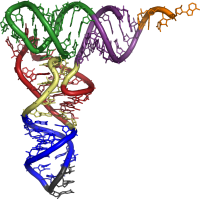post-editing required for machine translation Thread poster: EHI (X)
|
|---|
EHI (X)
Local time: 01:15
Job posting:
"Post-editing (of medical document) requires the correction of a document pre-translated with a machine.
That's clever. Let the machine do the translation and get a proofreader to correct it.
I wonder whether their client knows about this?
| | | | Ken Cox 
Local time: 01:15
German to English
+ ...
| it's a job.... | May 19, 2008 |
At least the agency is honest with respect to potential translators, and what they tell their clients is their business.
The results of machine translation range from abominable to fairly good, depending on specific circumstances (this topic has been discussed extensively in the Proz fora).
If you're interested in bidding, ask to see a sample and base your bid on the quality of the MT. If it's poor, it is normally more expensive to 'correct' it than to translate from sc... See more At least the agency is honest with respect to potential translators, and what they tell their clients is their business.
The results of machine translation range from abominable to fairly good, depending on specific circumstances (this topic has been discussed extensively in the Proz fora).
If you're interested in bidding, ask to see a sample and base your bid on the quality of the MT. If it's poor, it is normally more expensive to 'correct' it than to translate from scratch, while correction is practically impossible if it's really bad and you don't have the source text.
If the agency is taking the approach of using quick-and-dirty MT plus post-editing to generate inexpensive translations, the only way to convince them that this won't work is to confront them with the true cost of correcting poor MT. ▲ Collapse
| | | | | Nothing wrong with it per se | May 19, 2008 |
It's their preogative to achieve the end result as they see fit.
If they want to listen to Pink Floyd and eat a peanut butter sandwich in the process, they can do that too.
Whether it will be cost-effective in the long run is another matter, as Ken rightly points out.
The bottom line is the translation, once complete, must be fit for purpose.
| | | | EHI (X)
Local time: 01:15
TOPIC STARTER
No, there is nothing wrong with it per se, in the same way as there is nothing wrong with listening to Pink Floyd and eating peanut butter sandwiches.
You may also consider declaring your shoe size a matter of faith, but then of course this thread wasn't really intended as a contest for bogus reasoning.
The reason I did post this job offer is because to me it is blatantly obvious what this person/agency is hoping to achieve. I agree, theoretically there may be other rea... See more No, there is nothing wrong with it per se, in the same way as there is nothing wrong with listening to Pink Floyd and eating peanut butter sandwiches.
You may also consider declaring your shoe size a matter of faith, but then of course this thread wasn't really intended as a contest for bogus reasoning.
The reason I did post this job offer is because to me it is blatantly obvious what this person/agency is hoping to achieve. I agree, theoretically there may be other reasons, but common sense suggests otherwise.
Having medical documents translated by a machine just seems a bit silly to me and rather unprofessional. But then of course I do like peanut butter sandwiches ▲ Collapse
| | |
|
|
|
| Dangerous??? | May 19, 2008 |
Lutz Molderings wrote: Having medical documents translated by a machine just seems a bit silly to me and rather unprofessional. But then of course I do like peanut butter sandwiches 
And to me it sounds dangerous. That said, I know very little about medical translations and wouldn't touch one if my life depended on it.
Peanut butter sandwiches, on the other hand, I'm forced to "touch" every morning - and I can't stand the smell.
| | | | | What is wrong with machine translation? | May 19, 2008 |
Lutz Molderings wrote: No, there is nothing wrong with it per se, in the same way as there is nothing wrong with listening to Pink Floyd and eating peanut butter sandwiches. You may also consider declaring your shoe size a matter of faith, but then of course this thread wasn't really intended as a contest for bogus reasoning. The reason I did post this job offer is because to me it is blatantly obvious what this person/agency is hoping to achieve. I agree, theoretically there may be other reasons, but common sense suggests otherwise. Having medical documents translated by a machine just seems a bit silly to me and rather unprofessional. But then of course I do like peanut butter sandwiches 
Machine translation seems to be the only techonology that we all translators love to hate...
What's wrong with using it in situations where the same quality can be achieved with less effort?
I have been involved in commercial projects where the process of using machine translation + editing was more cost-efficient than using human translation plus editing without compromising the quality.
As you probably know, MT is used efficiently in some areas (like automotion), what makes you think that this project is not using MT properly?
Maybe they have a very strongly controlled authoring procedure which facilitates the use of MT as much as it does in other areas, why not?
We don't even know which MT system they are using!!!
To you it might be obvious but to me it isn't. At least not with the information you mention.
Daniel
[Edited at 2008-05-19 19:47]
| | | | Vito Smolej
Germany
Local time: 01:15
Member (2004)
English to Slovenian
+ ...
SITE LOCALIZER | A realistic backdrop / explanation? | May 20, 2008 |
Let the machine do the translation and get a proofreader to correct it.
It could be the co-called SmPC = Summary of Product Characteristics (also abbreviated to SPC) and PIL = Patient Information Leaflet. They are supposed to follow a rigid backbone grammar - see for instance
http://www.legemiddelverket.no/templates/InterPage____69283.aspx *
with the always changing pound of flesh hanging on this one and the same bone. The agency wants be to sure the procedures are respected and of course is !!not!! ready to pay for yet another incorrect & unnecessary translation, but on the other hand needs to get the rest of the material in order.
*: I just hit upon the Norwegian page in Google, but, believe me, they are all the same, no matter what language is involved.
[Edited at 2008-05-21 11:30]
| | | | Samuel Murray 
Netherlands
Local time: 01:15
Member (2006)
English to Afrikaans
+ ...
| The client buys a result, not a service | May 21, 2008 |
Lutz Molderings wrote:
That's clever. Let the machine do the translation and get a proofreader to correct it.
I wonder whether their client knows about this?
If the proofreading/revising is done well, the result will be indistinguisable from a process that involved a human translator, right? And the client isn't paying for a process -- he is paying for a result.
| | |
|
|
|
EHI (X)
Local time: 01:15
TOPIC STARTER
The client is explicitly looking for a proofreader, not a translator. Why? Because proofreaders charge less than translators.
Personally, I think that's a bit of a cheek because the work involved will have little to do with what I would consider proofreading work.
In fact, I don't think I'm alone with this opinion.
The idea of a machine translating any text without the help of a human translator is very appealing to today’s global and multilingual society, for reasons such as costeffectiveness and data accessibility. However, as discussed in the Chapters 2.1.1 to 2.1.4, automated translation is a notoriously difficult task. The system must essentially mimic fundamental functions of human natural language processing (NLP) carried out in the human brain, or at least recreate the results of human intelligence operations.
This is where all current MT engines are still greatly limited. They have problems producing a translation comparable in quality to that produced by a professional human translator. MT output is error-prone due to the fact that human languages contain a variety of complicated relationships and ambiguities. Modern MT translation methods are not yet sophisticated enough to deal with that level of complexity. Lexical, morphological, syntactic and semantic variations present in both the SL and the TL further complicate the process.
Mett, Beatrix (2004) "Using Language Models to Assist in the
Correction of Machine Translation Output", Thesis, Department of Theoretical and Applied Linguistics, University of Edinburgh
I think the two important points are:
...all current MT engines are still greatly limited
and
...problems producing a translation comparable in quality to that produced by a professional human translator.
When this changes, which I'm sure it will, I will gladly proofread work produced by MT.
| | | | Samuel Murray 
Netherlands
Local time: 01:15
Member (2006)
English to Afrikaans
+ ...
| No, because... | May 21, 2008 |
Lutz Molderings wrote:
The client is explicitly looking for a proofreader, not a translator. Why? Because proofreaders charge less than translators.
No. The reason is not "because proofreaders are cheaper" but "because the job requires a proofreader" (actually, a reviser or editor, but that's just a little mistake).
| | | | EHI (X)
Local time: 01:15
TOPIC STARTER
[quote]Samuel Murray wrote:
No. The reason is not "because proofreaders are cheaper" but "because the job requires a proofreader" (actually, a reviser or editor, but that's just a little mistake).
Well, I suppose it depends on how you define proofreading.
I consider proofreading to be...
an essential part of rewriting, a thorough, careful review of the final draft that ensures that all errors have been eliminated.
If you think MT is capable of producing final drafts, then yes, you are of course right. All that is required is a proofreader.
My experience, however, is that machine translations are far from a final draft. They are somewhere between utter nonsense and fairly good in the sense that you can actually get an idea of what the text is about.
I don't know about your clients, but mine expect more than fairly good translation. They expect correct translations and to make sure they are, they have them proofread.
[Edited at 2008-05-21 11:34]
| | | | | Yes, there is something wrong with using machine translation | May 21, 2008 |
dgmaga wrote:
What's wrong with using it in situations where the same quality can be achieved with less effort?
Yes, there is something wrong, at least from translator's point of view: if we help with machine translations we help to destry our profession. If you help editig or proofreading it, you would help the company to avoid hiring a translator. Nex time, you will be the one who will not be hired because a machine did the work you should do and because another translator edited the machine translated text.
¿Does the agency want to edit and proofread machine translated text? well, let's them use "machine editing" and "machine proofreading". What? may be there is not "machine editing"? and "machine proofreading" neither? OOOOOH!!! what a pity!!!:D
Let's do not help with machine translation in any way, it's against our interests. As we say in Spain, "¡al enemigo, ni agua!".:evil:
| | |
|
|
|
Jeff Allen 
France
Local time: 01:15
Multiplelanguages
+ ...
| MT post-editing vs proofreading | Sep 14, 2008 |
[quote]Lutz Molderings wrote:
Samuel Murray wrote:
No. The reason is not "because proofreaders are cheaper" but "because the job requires a proofreader" (actually, a reviser or editor, but that's just a little mistake).
Well, I suppose it depends on how you define proofreading. I consider proofreading to be... an essential part of rewriting, a thorough, careful review of the final draft that ensures that all errors have been eliminated.
The person who performs the clean-up work of content that is pre-translated by a machine translation software program/system is not called a proofreader. They are called post-editors.
http://www.geocities.com/mtpostediting/
Post-editing is not always a single cycle. I've been involved in projects where the text went through 3 post-editing phases.
Much depends also on the level of post-editing which has been specified for the job (rapid post-editing, minimal post-editing, high quality post-editing), and in certain cases it is overkill to do high quality post-editing on the type of content and in the time constraints which are required.
The amount of Post-editing "will always" depend upon the amount and the quality of upfront dictionary building which is performed upfront. All serious implementations of MT systems have included dictionary building phases. Several of my published case studies on this topic in these forums have indicated the results on post-time after the dictionary building and validation phases.
If the customer is asking for a proofreader, then you need to inform them that this is called a post-editor which has a certain type of task which is very different from the proofreader role in the typical human translation cycle. If the customer has not done any dictionary work upfront, then this should automatically send up a flag that they don't know what they are doing to implement it correctly.
Jeff
| | | | Jeff Allen 
France
Local time: 01:15
Multiplelanguages
+ ...
| MT used successfully | Sep 14, 2008 |
dgmaga wrote: Machine translation seems to be the only techonology that we all translators love to hate...  What's wrong with using it in situations where the same quality can be achieved with less effort? I have been involved in commercial projects where the process of using machine translation + editing was more cost-efficient than using human translation plus editing without compromising the quality. As you probably know, MT is used efficiently in some areas (like automotion), what makes you think that this project is not using MT properly? Maybe they have a very strongly controlled authoring procedure which facilitates the use of MT as much as it does in other areas, why not? We don't even know which MT system they are using!!! To you it might be obvious but to me it isn't. At least not with the information you mention.
The questions which I always start with are:
* Which MT system (both brand and the specific model)?
* Which version of that MT system?
* What specialized and custom dictionaries are being used?
* What is the expected workflow for the translation cycle that they want to use?
* What are the source and final formats of the content, and how is that processed and used by the MT system/software?
* If the client has the MT system internally, I ask if they have received training by an MT provider on the system.
For those clients that are able to answer those types of questions, then I can go further with:
* how they are implementing Source language optimization methods (Controlled Language/Simplified language/others) for improving the translation cycle.
* TM and MT integration
I have also been involved in many business and industrial projects involving MT at varying levels from 1 user set-ups to enterprise level workflows. I've described this in general in many of my previous posts here in these forums.
Those who understand what they are getting into with MT will take the time to study and evaluate it, and have information on their current translation cycle and statistics to compare it to, rather than jumping in with a blindfold on.
Jeff
| | | | To report site rules violations or get help, contact a site moderator: You can also contact site staff by submitting a support request » post-editing required for machine translation | TM-Town | Manage your TMs and Terms ... and boost your translation business
Are you ready for something fresh in the industry? TM-Town is a unique new site for you -- the freelance translator -- to store, manage and share translation memories (TMs) and glossaries...and potentially meet new clients on the basis of your prior work.
More info » |
| | Trados Business Manager Lite | Create customer quotes and invoices from within Trados Studio
Trados Business Manager Lite helps to simplify and speed up some of the daily tasks, such as invoicing and reporting, associated with running your freelance translation business.
More info » |
|
| | | | X Sign in to your ProZ.com account... | | | | | |










